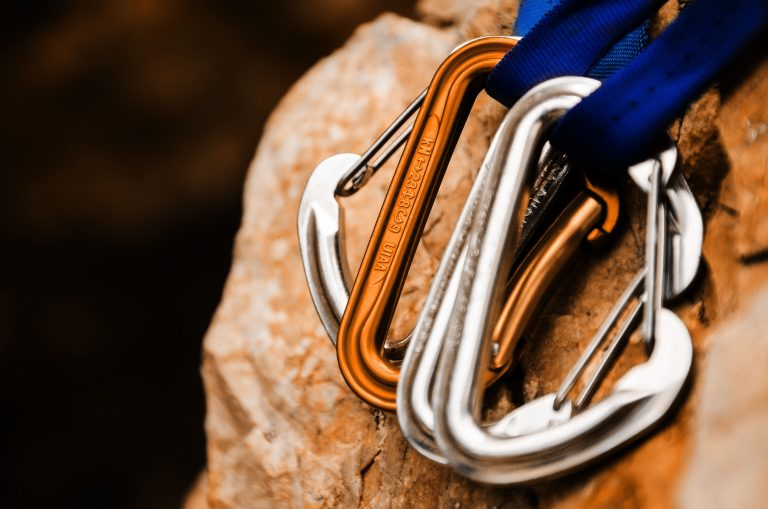Better the Anxiety you know
We all experience Anxiety differently. It takes many forms. Born out of endless scenarios. And can cripple us without hesitation. So, why should we get to know it?
The outsider
A while ago I discovered I was in a long-term secret relationship with Anxiety. Secret, as I had no idea I was in it.
If Anxiety was a person they’d be the one that joined your group of friends but no-one remembers inviting them. Silent and moody. The type of person you don’t want to be around. Unpredictable and edgy. You don’t know whether to admire their coolness or tell them to cheer the f*ck up.
As you can imagine, my failure to acknowledge Anxiety eventually pushed it over the edge. It had no choice but to make me painfully aware of its existence. But that’s another story…
Since I became aware of Anxiety I’ve found ways get along with it. I hope you or someone you know will find them useful too.
I’m not a trained professional in any respect of psychology or the affairs of the mind. My thoughts and opinions are formed only of my personal experiences (which are relative), the conversations I’ve enjoyed with insightful people, and the books I’ve absorbed (a few recommendations at the end of this)
Fear, by any other name
Anxiety is used to describe many millions of combinations of thoughts, feelings and situations.
In exactly the same way that each of us are unique, our Anxieties are individual to us. There are infinite shades of them, each one with their own uniqueness. Their own degree of intensity. Their own way of affecting us.
The truth is Anxiety is born of fear.
From excitable nervous butterflies dancing in your tummy, to crippling thoughts that strip you of your ability to think and move. We all experience our own, very personal, versions of Anxiety.
At its most fearful it induces crisis. Overwhelming panic, the need to escape. At these times it can be so deafening it’s impossible to recognise that it is at the centre of the chaos.
At its most subdued Anxiety is almost helpful. Remaining present, gently applying pressure in ways so subtle they can be overlooked.
We all respond to fear differently and to varying degrees. It can make us stop dead in our tracks. It can make us lash out in panic. It can make us run, and not look back. It can make us hide.
But consider this…
Fear is humanity’s saviour
Before we created our socially complicated and technologically driven utopia, fear saved our lives on a daily basis.
If you ignore fear when you stumble across a tiger, you die.
Fear has saved humanity more times than you can imagine.
We enjoy it too, in fact we seek it out. The horror movie you love to hate. The curtain call. Looking down.
We love fear.
Fear is explosive. It’s born out of terrifying places. If we acknowledge it and act as nature intended, it induces incredible psychological and physiological chain reactions.
These reactions will save your arse when you need them to.
Or at the very least, they’ll give you an enormous sense of wellbeing. Which happens as the initial rush of fear evaporates, we wave goodbye to the Cortisol that’s empowered it and embrace the good time guys — Dopamine, Serotonin, and Adrenaline.
If you’re lucky enough to find your fear, you get hooked. Sky divers, street performers, surgeons, public speakers, downhill bikers, karaoke kings, needle-point ninjas… you’re all hooked on fear.
Now, think of all the choices you’ve made due to fear or that have induced fear as a result of them.
If you’re honest, many of these will be the best decisions you’ve ever made and probably led to the most exhilarating experiences you’ve ever had.
Fear isn’t a bad thing.
Pretend best friend
Fear is a good thing.
So, if Anxiety has fear at its core it must be innately good. Right?
Try to understand Anxiety in a different way and you’ll see it for what it can be, a secret and powerful guide to your life. The best friend you never knew you had.
When Anxiety speaks to you it’s always with good reason. And it’s always uncomfortable.
In the same way that most truths are uncomfortable. It’s not easy to listen to.
The Anxiety will out
Here’s the thing, we all have our own Anxiety. But we tend to exist in one of two groups.
There are those of us who know our Anxiety, it has a name and we’re doing our best to live with it.
In some ways, knowing it exists makes things harder for us. We’re aware that something else, largely uncontrollable, is influencing our decision making.
Like deciding not to go out. It’s been in the calendar for months and you’ve genuinely been looking forward to it. The subtle tones of Anxiety whisper to you…
“You haven’t been to this bar before, why this place? What if the trains are delayed and you’re late? Give it a miss, you’ll be happier at home, there’ll always be next time.”
Or like deciding to check your emails one last time before the weekend, even though you’re already on the train home. Anxiety repeatedly telling you there is an important and urgent matter that needs your attention, of course there isn’t, but…
“You know I’m going to keep tapping you on the back of your head, you might relax tonight but I’ll be back Saturday. And again Sunday. Check now and I’ll stop… Tap. Tap. Tap…”
At best we can intervene before it’s too late, at worst we realise what’s happened with the clarity of hindsight. Make our peace with it and promise ourselves we’ll be more present of mind next time.
Most of us understand that our Anxiety is born out of something in our past. As simple as a learned habit, an embarrassing experience that left a deep scar, or god forbid something worse.
We accept our Anxiety, try to understand it and do the best we can to work with it.
Then there are those of us who experience Anxiety less frequently. We don’t necessarily call it by its name. We’re comfortable with it and know how to deal with it when it gets vocal.
We know it by different names like worry, nerves, doubt, stress, and imposter syndrome. We’re well equipped to deal with it and in some ways find these moments rewarding and energising.
Our encounters with Anxiety don’t get easier, but we see them as part of our process to getting things done. Our special sauce. We know deep down this fear is good.
If you had asked me a few years ago, I’d say without hesitation I existed in the latter group.
Turned out I was wrong.
A long river
I had ignored Anxiety since the day it joined me. Actually no, that’s not fair. I didn’t ignore it, how could I ignore something I didn’t know was there?
Instead of trying to understand the way I was feeling I’d make excuses and reason with myself to slowly push my thoughts and fears deeper.
I ended up accepting that’s just who I am. This wasn’t a bad version of me, but I inevitably held back from doing the things that would benefit me most. Make me happiest. Deep down I knew this and it upset me, but I buried it.
It all came to a head for me from two different directions. Two triggers that introduced me to my Anxiety, my new BFF.
I’d love to say it was like watching a car crash in slow motion. But it was more like jumping between two run away locomotives, whilst trying to bring them under control. Both moments away from de-railing and crashing off the bridge they were hurtling across. Taking me and all the passengers with them, plunging down into the great river that ran beneath us… de nile.
My daily dose
Most of the time my Anxiety is subtle. A quiet, almost friendly voice.
I consciously let Anxiety help me make decisions. I’ve had to get better at stopping my train of thought. My Anxiety exists for a reason. As long as I remember it’s with me, we get on ok. But I have to own the relationship
It has taken me a while to realise that when you are Anxious about something, it’s ok. And if you are at peace with your Anxiety, that’s ok too.
My Anxiety is very bad at making itself understood. The worries that surface aren’t necessarily the root cause, or trigger.
The compulsion to check my email wasn’t about the worry I might be missing something important. It was because deep down I wasn’t happy about the way a particular client was treating me.
The fearful email checking was a symptom of a negative and destructive relationship. If I’d known then what I know now, I would’ve had an honest conversation with the client. And in the process saved my energy for enjoying the weekend.
The key is awareness. It takes time and effort. It takes habit forming. It takes strength and patience. If you are aware, it is possible to recognise an anxious thought for what it is and deal with it.
White-noise cranked to eleven
I’m lucky that I don’t tend to get crippled by my Anxiety.
That’s not to say I haven’t been. The handful of times it’s happened were triggered by entirely different situations.
At its peak, my Anxiety strips me of my inner monologue.
It turns out my monologue is how I process what’s happening. A story that I’m narrating, that allows me to understand and gain perspective. It’s automatic and has always been there.
You probably have one too, a train of thought. You might not be aware of it all the time or it might not present itself to you in the same way as it does for me. But it will be there.
The silence created when Anxiety disrupts my monologue is deafening.
It means I can’t think straight. I can’t finish a thought.
My thoughts are blown to the four corners of my mind and Anxiety wont let me get them back. This is very different to daily doses of Anxiety, there is no opportunity for conversation or understanding.
This is my brain’s cue to fight, flight or freeze. I’ve experienced them all. But it’s only with hindsight and the help of someone else that I’ve been able to recognise those moments for what they were.
You might be surprised to think back to moments that stand out in your past, where you thought you were just being you. But in reality a very ancient part of your brain had taken over because your modern brain checked out for a moment. Usually as a reaction to threat or through exhaustion and an inability to stop and think straight.
Maybe an argument you’ve had that felt really out of character for you. Fight.
Maybe that time you just had to leave a room because of the atmosphere. Flight.
Maybe when you were confronted with an uncomfortable truth and were lost for words. Freeze.
My white-noise moments have happened in recent years. The result of a build up of all the daily Anxiety, slowly mixed with a few learned behaviours and topped with a sprinkling of excruciatingly embarrassing moments.
With a little help from my friends, a professional friend and a lot of audio books, I now understand what fuels these moments. I now get it, I understand what triggers my Anxiety.
It wasn’t easy, but simply knowing makes a difference.
Once you’ve recognised your Anxiety and got to know it, you need to keep it close. Don’t grow distant, or a Bitch Anxiety will be.
The point
I believe we all have the potential to fall victim to our Anxiety.
We don’t know what’s around the corner. What might trigger anxieties we never knew we had. Ones that have been silenced by years of practice.
Whether you’re aware of your Anxiety or not. Whether you’re comfortable with it or struggling day-to-day, maybe this idea will help you or someone you know.
Your Anxiety is trying to tell you something. It serves a purpose.
It might be a warning about something that’s going to happen. Something your subconscious can see heading your way but for some reason you’re blind to it.
It might be a warning about something that has already happened. You need to face into it before it buries itself, only to surface without warning one day in your future.
It might be a signal to stop. Anxiety gets louder when your mental energy runs low. You need to invest time looking after yourself. Naval gaze.
It might simply be the oldest part of your brain being tricked into fight, flight or freeze mode. If you ignore it, it’ll keep happening. It’ll wear you down. You need to know what’s triggering you.
Whatever it is, Anxiety is talking to you for a reason that’s important to you.
DO NOT IGNORE IT.
Spend time with it, respect it, understand it.
It’s all about stopping when you feel any Anxiety, stepping out of that thought and recognising what it really means for you. It takes practice. You may need someone to show you the way.
If you are like me it will need to be a stranger at first, that’s just the way some of us are wired and that’s cool. Or you might be ok talking to your partner, friends, family or (if they’re worth their salt) your boss.
But you’ll need to find someone you can open up to and explore what you are going through.
If you can, find someone that is or has experienced the same as you.
Organisations like Mind, MHFA England, Time To Change, Sanctus and The Mental Health Foundation have a wealth of guidance on their sites. And this excellent article contains really helpful advice and resources.
Books to read or listen to;
Everything Begins With Asking For Help
The Book You Wish Your Parents Had Read
I’m happy to talk. If you think my experience can help you, message me.

Mixed up makes better: BIG thinking
BIG thinking leads to BIG ideas. So how do you convince people to take this exhilarating leap into the unknown with you?

Mixed up makes better: Internal communications
Internal communication is hiding a trap in plain sight. A sting in its tail for unsuspecting communicators.

The Brave are dead. Long live the Brave.
The definition of brave is to show no fear of dangerous or difficult things. We need to evolve what being brave means when it comes to mental health

